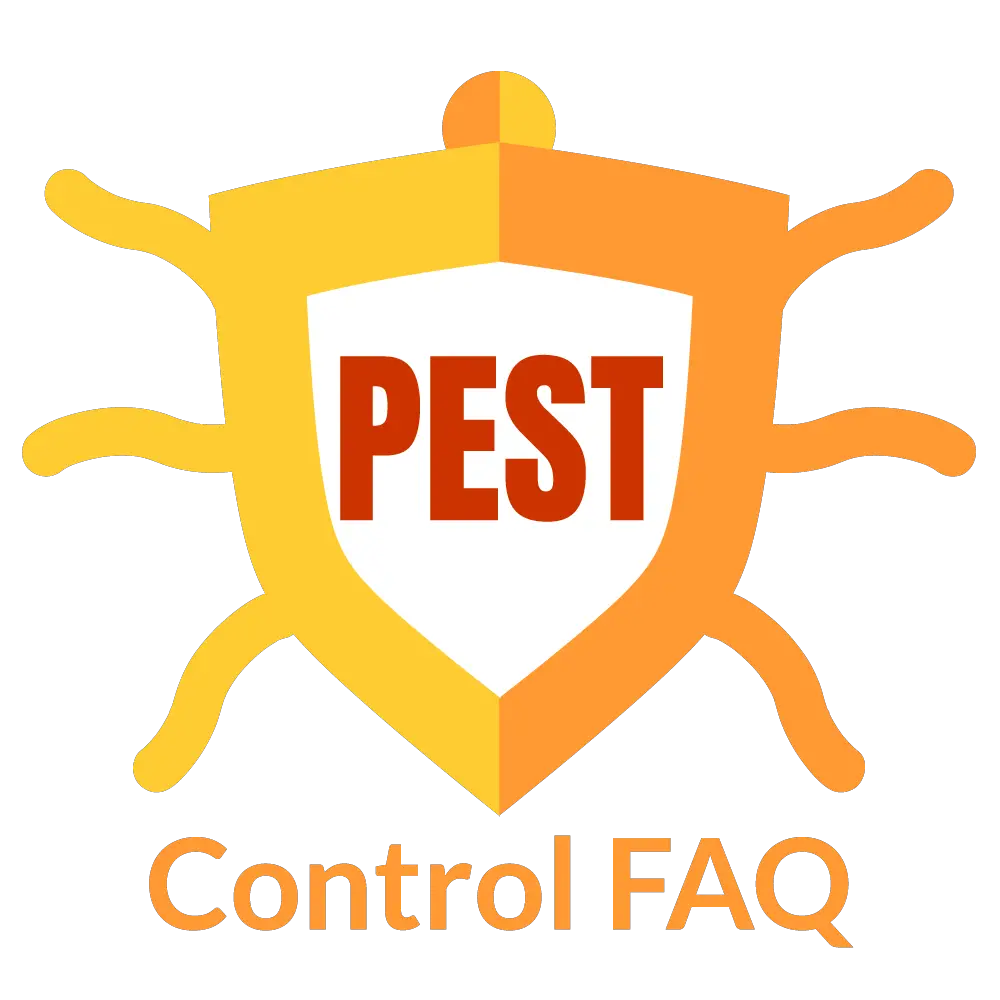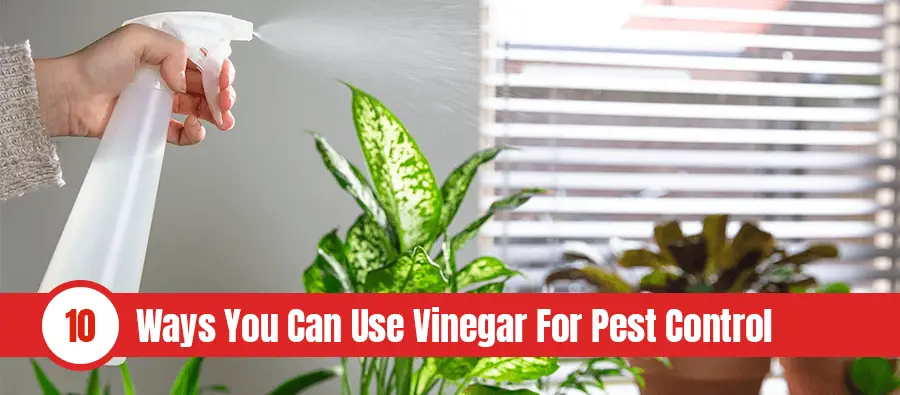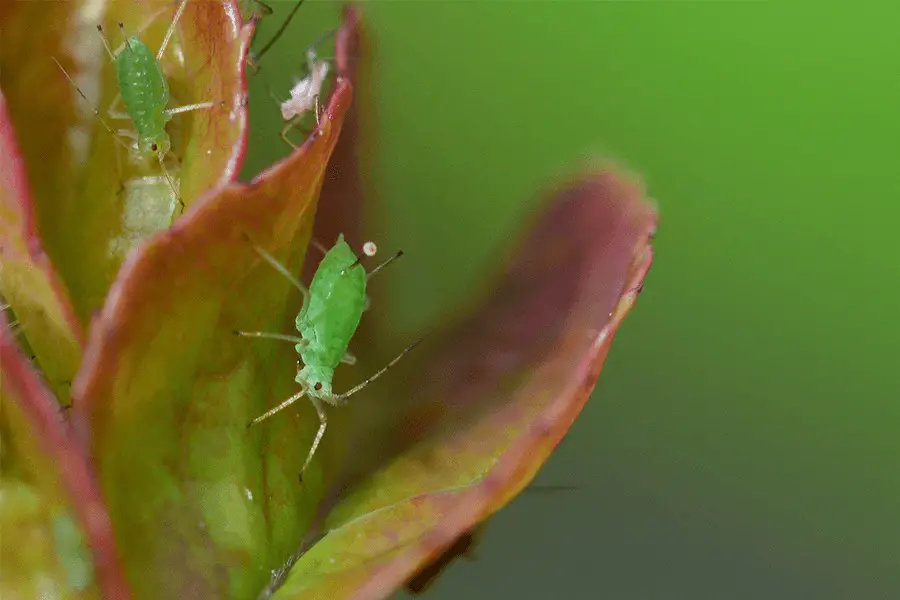If you are searching for an effective, less-toxic, and incredibly cheap remedy against pest problems, this article is for you. Vinegar is a multi-purpose household agent. It serves not only as a great cleaning agent and natural weed killer but also as a highly powerful option for pest control.
While commercial pesticides are equally effective, it’s important to consider a less toxic option that can be used both in the interior and exterior of your home or property. There are several ways you can use vinegar as pest control in your home and garden. These include traps or liquid sprays which offer a safer option for you, your family, and your pets.
Are you a homeowner or gardener dealing with ants, flies, or plant molds? Before you rush out to purchase harmful pesticides, try vinegar. It’s a commonly found item you probably already have in your kitchen. Though vinegar is not a one-fit-all kind of pesticide, it works great for specific pest issues. This means it may not be effective for some others, keep reading to find out what pests vinegar works best against.
Apple cider vinegar vs white vinegar
While apple cider vinegar has a darker color and is made with apple extract, white vinegar is made from the fermentation of alcohol. Both of these options can be used as pesticides.
White vinegar is mostly used for cleaning because it has antimicrobial properties. On the other hand, apple cider vinegar has so many uses in the kitchen. It is generally more nutritious and it costs more.
In this article, we’ll be pointing out which is the best option for your specified pest problem.
10 ways you can use vinegar as a pesticide
Vinegar works for a good number of pests. You may need to create a spray using some other essential oils to increase effectiveness. It can be very helpful for pest control in the garden.
It is important to consider the acid concentration of the vinegar spray you intend to use. A higher concentration can seriously damage your plants. Lower acid concentration like apple cider vinegar is always a better and safer option for your plants. It can even be mixed with water to reduce the acid concentration.
You may also want to test-spray a portion of your plants and watch the effect on them. If the result is not favorable, simply dilute the spray with water and re-apply. Without any further ado, let’s uncover the 10 ways you can use vinegar for pest control.
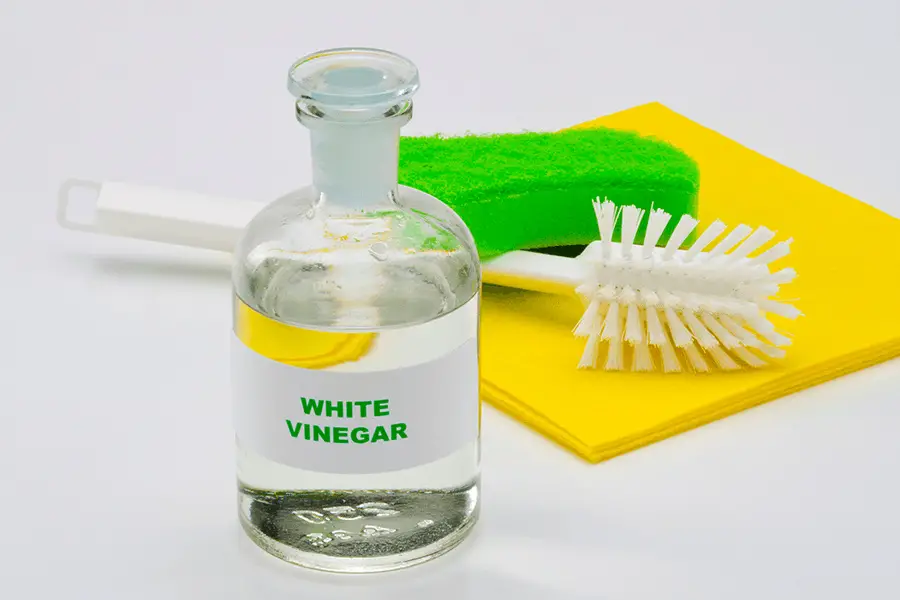
1. Get rid of spiders with white vinegar
You may already know that spiders are natural pest control creatures. They feed on other critters such as ants and roaches. But if you are one of the many people who are really scared of these, or you live in an area infested with deadly spiders like the black widow, then getting rid of them is a valid option.
Insecticides may seem like the perfect option but most of them won’t work on spiders. You can naturally get rid of these creatures using white vinegar.
To kill spiders, simply mix up a 50/50 solution of both vinegar and water. Use a spray bottle to apply the solution on the areas where you find spiders hanging around or where you find their webs. To intensify the effect of your mixture, you can toss at least 2 tablespoons of chili powder into the solution.
This mixture will kill spiders that come in close contact with it. Vacuum all cracks and services around your property, and note that the spiders are coming into your house. They can find their food sources anywhere, so ensure cleanliness and block all their entry points.
If you have an extreme infestation, consider inviting the pros or simply read here to learn more about getting rid of spiders.
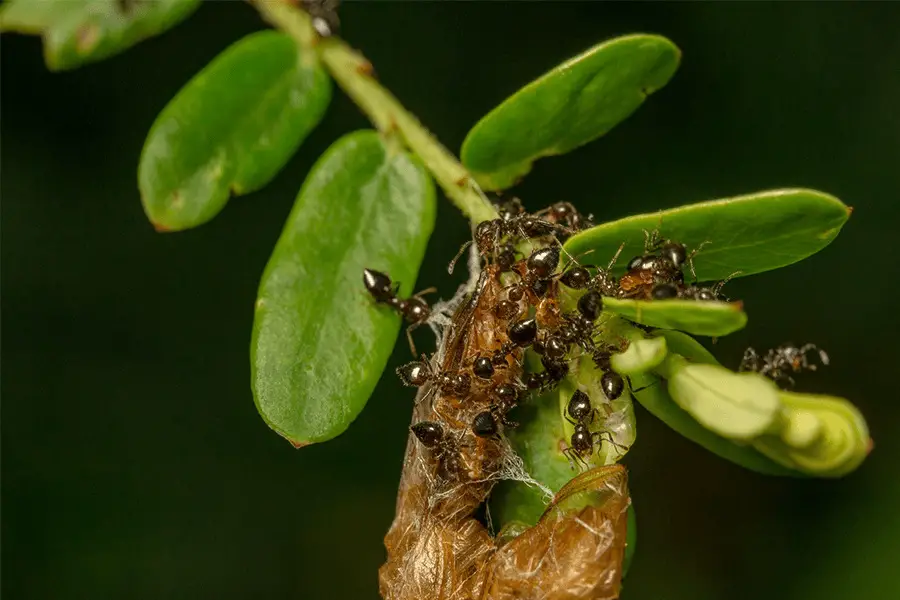
2. Kill ants instantly with white vinegar
Ants are even more disturbing than we give them credit for. They are massive invaders that move around in huge quantities. These insects may not be an issue outdoors, but when they move indoors, you want to act fast before they take over your space.
If you’re looking for an eco-friendly and effective solution to ant problems, vinegar is the best option for you. Vinegar not only kills ants directly, but its odor also repels the ants and neutralizes the scent trails they use to navigate on the ground.
Make a mixture with 2 cups of water and 10 drops of eucalyptus oil. Then, add up to a ¼ cup of white vinegar to the mixture. Dip a cloth in the mixture and apply across the ant trails and surfaces such as countertops and cupboards where you normally find them.
Avoid applying vinegar on countertops made of marble, granite, or any other type of natural stone. Vinegar is acidic, so it will dull the stone. If you are watchful, you’ll notice that ants follow a certain path around your home. Use this treatment consistently in that area and ensure ant-free space.
You can also add a few drops of vinegar to the cleaning solution you use for mopping to deter ants from your space. Ants hate the smell of vinegar, so use this against them. Avoid rinsing the surface after application and make sure to repeat these procedures daily till you no longer see the ants.
While an ant infestation doesn’t suggest that your home is filthy, it’s a call to clean up every little mess. Every ant control measure will prove unsuccessful if you don’t make efforts to tidy up.
So it’s time to seal up that honey jar and tighten the sugar container. You can take a step ahead of the ants, follow the trail to their entry point, and seal up the holes or cracks you find there.
3. Use vinegar traps against fruit flies
Fruit flies are unwelcome guests that are attracted to fruits and vegetables. In fact, female fruit flies lay their eggs inside decaying fruits. Each female fruit fly can lay up to 500 eggs at a go! So you see, if you want to get rid of these pests, you’ll need a powerful, long-term option such as vinegar.
Vinegar, particularly apple cider vinegar, is a great deterrent against fruit flies. You’ll need to make a sort of trap to ward off these insects. Don’t fret, the procedure is very simple.
You’ll need to get a small bowl or container, dish soap, and plastic wrap. Pour apple cider vinegar into the container and add in a few drops of dish soap. Cover the bowl with plastic wrap, seal the edges with a rubber band and create tiny holes at the top that’ll let the pests in, but not out.
Place your homemade trap in the infested area. The smell of this mixture will attract these pests and eventually trap them. The drops of dish soap make it hard for these pests to escape the trap.
You can use this trick to catch as many as possible and reduce the infestation. Another very important step to take is to throw out all decaying fruits immediately to prevent female fruit flies from laying eggs on them. Make sure to keep the sink clean and always dispose of waste consistently.
4. Eliminate gnats with apple cider vinegar
Gnats are insects that breed constantly, so it’s a good idea to treat them as urgent. To get rid of gnats, make a mixture of ½ cup of warm water, 1 tablespoon of sugar, 2 tablespoons of vinegar, and at least 6 drops of liquid dish soap in a bowl.
This sugary solution will attract the gnats and, just like with the fruit fly trap, the dish soap will help to trap them there. Just make sure to place the bowl in strategic areas where you’ve observed gnats lurking around. Gnats thrive in moist areas like sinks and overwatered houseplants, so check out these areas and make sure to keep them clean.
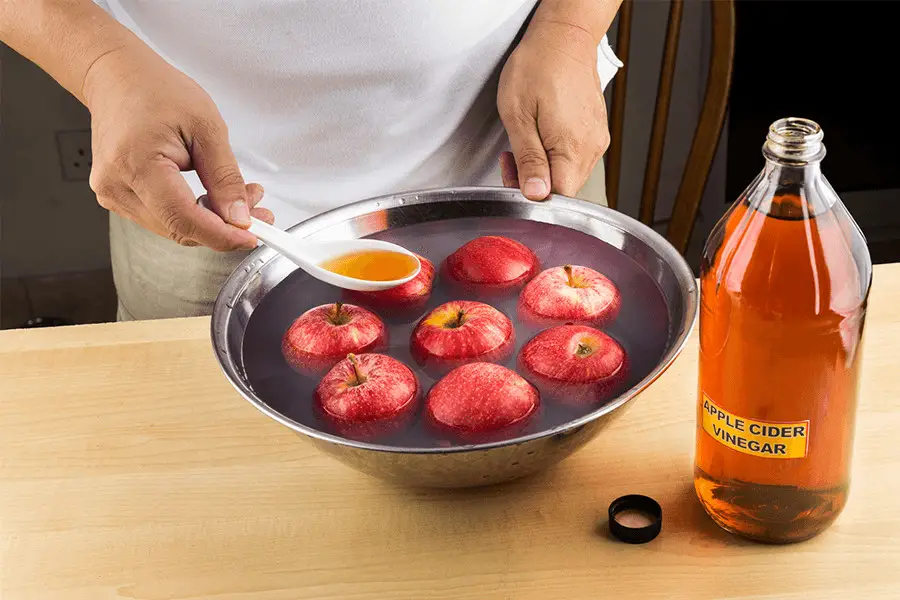
5. Stop mold growth on plant soil with apple cider vinegar
Even if you take good care of your plant, you may still notice mold growing on your soil occasionally. This is more common with outdoor plants and can be very harmful to them.
Nevertheless, vinegar is a powerful remedy that kills mold on plant soil before the situation gets out of hand. While some amateur gardeners treat plant mold with bleach, vinegar is a better option. It’s more effective and less toxic to your plants.
You’ll have to make a spray using 1 tablespoon of vinegar and 2 quarts of water. Once it’s mixed, pour the mixture into a spray bottle and apply the solution to your plants to remove the mold.
Repeat this procedure often and it won’t be long until your soil is mold-free. If you observe that certain parts of plants are already infected, remove them before it spreads to other parts.
6. Keep aphids at bay with apple cider vinegar
These pests can cause serious trouble in the garden. They suck plants’ sap and excrete sticky substances. Vinegar is a great pesticide spray against aphids. This simple liquid coats the body of the aphids and clogs their breathing holes.
You can easily add 1 tablespoon of dish soap and 1 tablespoon of vinegar to 1 gallon of water and shake. Then, pour the solution into a garden sprayer and spray directly onto the infested plants. You can do this two times a week, either early in the morning or in the evening.
You don’t want to apply this solution when the sun is out. It may cause your plants to burn. Planting onions and garlic in your garden can also help keep aphids far away.
7. Kill slugs and snails on sight with apple cider vinegar
No doubt, slugs, and snails are gardener’s worst enemies in wet seasons. The destruction of the foliage of your plants can be devastating. If you’ve tried several options to deter these creepy creatures and are still having a hard time with them, then this is for you.
Vinegar is a budget-friendly item you can easily get in any store and it kills both slug and snails!
Make a spray by adding equal amounts of water to vinegar. Then spray directly on the infected areas. Vinegar is acidic, so it’ll dissolve the slugs and snails and eventually kill them.
8. Repel roaches with white vinegar
Roaches are annoying pests that are normally found in the kitchen. If you have pets around, you may want to use a natural pest control option like vinegar to keep roaches away.
The smell of vinegar makes it difficult for roaches to hang around your home. Occasionally spraying vinegar around the areas these roaches hideout will create a barrier that keeps them away.
Vinegar should not be used as a standalone treatment for roaches. It should only be used as a deterrent or additional roach control measure.
If you decide to try vinegar, make sure to dilute it with an equal measure of water and then place the mixture in a spray bottle for use. You’ll need to apply this treatment repeatedly for significant results.
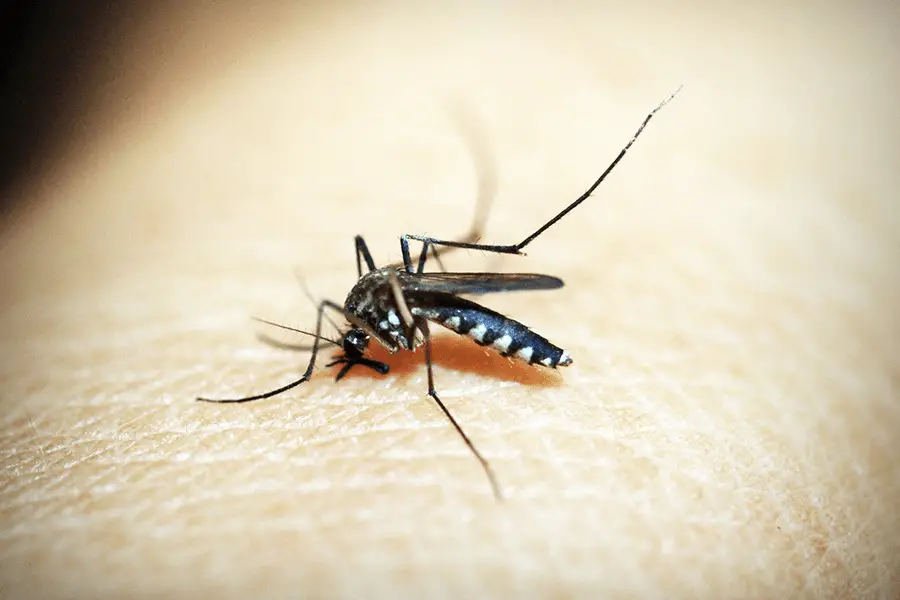
9. Repel mosquitos with vinegar
All types of vinegar repel mosquitos excellently. Apple cider vinegar in particular is known as the best natural mosquito repellent out there. White vinegar works too, but you’ll have to mix it with water to boost its effectiveness.
Mosquitos taste through their legs, so the strong taste of vinegar and its scent drives these invasive pests off. Creating a good mosquito repellent with vinegar is as easy as getting a spray bottle and pouring apple cider vinegar into it.
Apply it to your skin and spray it on affected areas to keep mosquitos away. Consuming apple cider vinegar is also said to give your body a natural, repelling, odor, but be careful not to overdo it.
If all you have is white vinegar, you’ll want to mix up a 50/50 solution of water and vinegar in a spray bottle and add at least 10 drops of essential oil such as lemon, citronella, mint, or eucalyptus.
The only setback with this method is that it doesn’t work very quickly, it’s more like a slow but permanent solution to mosquito problems. If you are looking out for a quick fix, this may not be the best option for you.
10. Kill bedbugs with white vinegar
White vinegar also works for early bedbug infestation. But it does not affect the eggs. Spraying vinegar on bedbugs will disrupt their nervous system as vinegar is a potent acetic acid.
This remedy is effective only during an early-stage infestation. It should be used as an additional, not a standalone, treatment. You can use vinegar to deal with bedbugs before you carry out a full treatment.
Make sure to soak infected areas especially cracks and crevices where the bugs hide with white vinegar. You can also spray vinegar directly on the bugs.
If you are dealing with an early infestation, you can use vinegar effectively to end the problem. Spray vinegar on infected surfaces, this includes all furniture, window sills, and walls. Repeat this every week to ensure a reduction in bedbug infestation.
Avoid mixing vinegar with a substance like bleach. This will give off chlorine gas, which is highly toxic and harmful to humans.
What you need to know
Vinegar is a safe option that works for both indoor and outdoor pest control. This household item is easy to find and used for several purposes including cooking. So it’s the safest option for humans as well as pets.
But you need to be careful while using this powerful item. This is because while vinegar repels several pests, it also attracts some others like fruit flies. Make sure not to carelessly spill vinegar around your home. If you do so mistakenly, take time to clean it up quickly.
You also want to make sure to keep your environment clean. Vinegar is not a one-fit-all pest control remedy, there are certain pest issues it works for and we’ve mentioned them here. Although vinegar has been proven to be the most effective option against several pest issues, it doesn’t work for pests such as termites and rodents.
